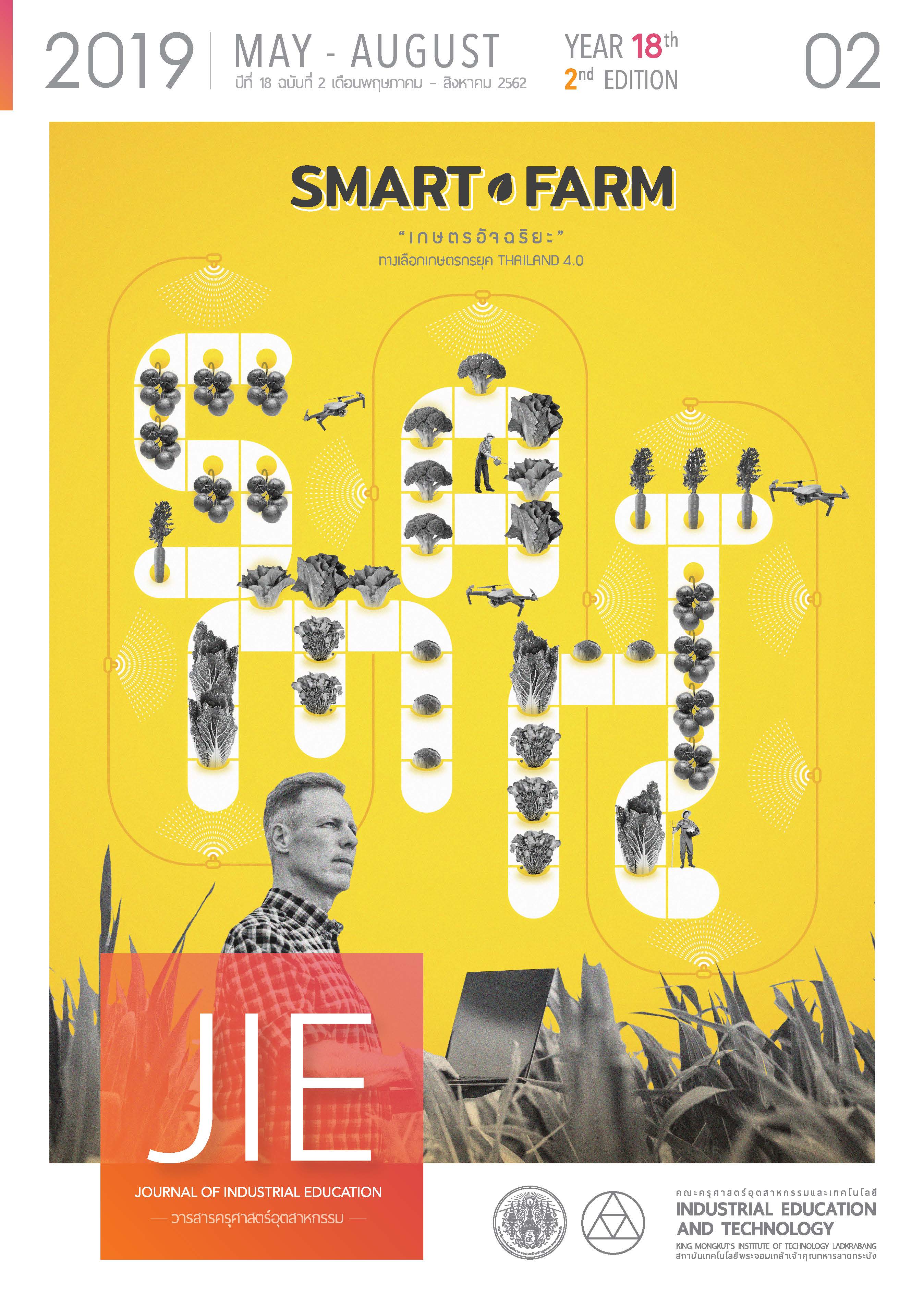THE GUIDELINE ON THE PROMOTION OF ORGANIZATIONAL CITIZENSHIP BEHAVIOR OF GOVERNMENT TEACHERS UNDER THE OFFICE OF THE SECONDARY EDUCATIONAL SERVICE AREA 3, NONTHABURI PROVINCE
Keywords:
The Guideline on The Promotion, Citizenship Behavior, Government Teacher, Secondary SchoolAbstract
This survey research aims to study 1) the level of the Organizational Citizenship Behavior of government teachers, 2) the comparison of the Organizational Citizenship Behavior of government teachers classified by demography characteristic and 3) the guideline on the promotion of Organizational Citizenship Behavior of government teachers. The sample used in this research were 340 government teachers under the Office of the Secondary Educational Service Area 3, Nonthaburi Province collected through Stratified Random Sampling method specified by school sizes and 8 school administrators. The tools of this research were 5–points Likert scale questionnaire with reliability of 0.968 and the interview form. Data was analyzed and processed by statistical package program. Statistical processes used for data analysis were Mean, Standard Deviation, T-test, Analysis of Variance which specified the statistical significance value at 0.05 and Content Analysis.
The results of this research were found that 1) the overall aspects of the Organizational Citizenship Behavior of government teachers were found to be at high level, the highest one was compliance with rules and regulations of organization followed by organizational loyalty and cooperation respectively, 2) government teachers with different ages had the Organizational Citizenship Behavior on helping aspect in varied ways with the statistical significance value at 0.05, 3) government teachers with different sex, level of education and school size had the Organization Citizenship Behavior not different, 4) government teachers with different working experiences had the Organizational Citizenship Behavior on personal development aspect in varied ways with the statistical significance value at 0.05 and 5) the guideline on the promotion of Organizational Citizenship Behavior of government teachers consisted of the policies on professional development and on organizational culture building up.
References
Kannika Suwanri. 2557. Human Resource Management. Nakhon Pathom: Nakhon Pathom Rajabhat University.
Wasana Srisakarlarp and Jirawan Kongklai. 2559. Human resource management in the information age organization step through the new era organization. Veridian E-journal Silpakorn University, 9(2), p.330.
Tiwaporn Rukngam. 2559. The Relationship of Leadership Styles and Perceived organizational Climate to Organization Citizenship Behavior With Organizational Commitment as a Moderator: A Case Study of Nursing Personnels in Government University Hospital. Thesis, Thammasat University.
Podsakoff, P.M., 2000. Organizational Citizenship Behaviors: A Critical Review of the Theoretical and Empirical Literature and Suggestions for Future Research. Journal of Management, 26(3), p.513-563
Rattikorn Chongvisarn. 2560. Leadership: Research theories and guidelines for development. Bangkok: Kasetsart University Publishing.
Chutima Malai. et al. 2560. Promoting Organizational Citizenship Behaviors: The Challenging Management for Quality Instructors. FEU Academic Review, 11(4), p. 45-46.
Issarapharp Salee. 2556. Structural Equation Modeling of Organizational Citizenship Behavior and Knowledge Sharing: A Case Study of Aircraft Technicians in a Public Company. Thesis, National Institute of Development Administration.
Secondary Educational Service Area Office 3. Area 2561. Basic school information Under the Office of Secondary Educational Area, Searched on 1 August 2561, from https: data.bopp-obec.info/emis/school.php? Area_CODE = 101703
Likert, Rensis. 1967. The Method of Constructing and Attitude Scale in Reading in Fishbeic, M. Ed, Attitude Theory and Measurement. New York: John Wiley & Son.
Organ, D.W. 1991. Organizational Citizenship Behavior. 4th ed. USA: Richard D. Irwin Inc.
Organ, D.W. 1991. Organizational Citizenship Behavior. 4th ed. USA: Richard D. Irwin Inc. Organ, D.W., et al. 2006. Organizational Citizenship Behavior: Its Nature, Antecedent and Consequences. California: Sage
Allen, T.D, & Rush, M.C. 1998. The effects of organization citizenship behavior on performance judgments: A field study and laboratory experiment. Journal of Applied Psychology, 83(2), p.247-260.
Krabi Sukthon and Udom chamraspan. 2559. The Organizational Citizenship Behavior of Teacher in Secondary School Under The Office of The Basic Educational Commission in Nongkhaiprovince and Buengkhanprovince. The 1st National Academic Education Conferenced. p. 55.
Suparat Sriseang and Tanayu Phuwittayatorn. 2560. Factors Affecting the Organizational Citizenship behavior of employees in One Bank. Phuket Rajabhat University Academic Journal, 13(1), p. 29-30.
Organ, D.W. & T.S. Bateman. 1991. Organization Behavior. 4th ed. Boston: Irwin.
Pitchanan Tonglor. 2557. The study of Organizational Citizenship behavior of the staff at the Institute of Dermatology. Thesis, Mahidol University.
Cheevaphas Tongpan and Thawan Nieamsup. 2555. Factors Affecting Organizational Citizenship Behavior of Employees in a Building Materials Company. KKU Res J (GS), 12 (2), p. 145-149.
Oranit Saengthongsuk. 2559. Factors affecting The Organization Citizenship behavior of The Operational Staffs in The Hotel Business in Thailand. Thesis, Sripatum University.
Kitcha Banchuen. 2560. Human relations in the organization. Bangkok: SE-Education.
Phinyada Rinsuk. 2560. A Good Citizenship of Organization: A Case Study of Private Companies in Bangkok Metropolitance. Journal of Nakhon Ratchasima College, 11(1), p. 166.
Phusadee Jongkwan. 2557. Factors Affecting Relationship between Organizational Commitment and Organizational Citizenship Behaviors of Teachers of Private Schools in Bangkok and Vicinity. Thesis, Kasetsart University.
Downloads
Published
How to Cite
Issue
Section
License
"The opinions and contents including the words in papers are responsibility by the authors."
"ข้อคิดเห็น เนื้อหา รวมทั้งการใช้ภาษาในบทความถือเป็นความรับผิดชอบของผู้เขียน"



